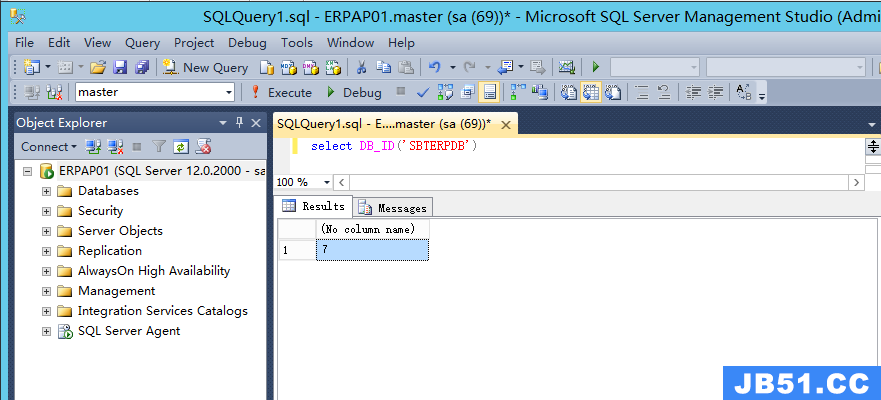今天遇到非常蛋疼的问题 如下:
我的系统主库是postgresql的 另外还连接了两个MSsql的数据库 先前客户说是2008R2的
我的系统会定时的去MSsql的数据库同步数据到postgresql
driver=com.microsoft.sqlserver.jdbc.sqlServerDriver url=jdbc:sqlserver://ip:port;database=dbname username=sa password=******
然后客户说有一台数据库的数据同步不了数据,并且数据库是MSsql2000的
我听到2000的第一反应就是以前数据库用2000的时候连接字符串和2005/2008的不一样
于是把连接字符串改成了
driver=com.microsoft.jdbc.sqlserver.sqlServerDriver url=jdbc:microsoft:sqlserver://ip:port;database=dbname username=sa password=******
然后我记得以前2000的jar包是有3个的
不知道我现在项目里用的这个sqljdbc4.jar能连接2000的数据库不
于是google搜 sqlserver2000 jar
转到了微软的
http://www.microsoft.com/en-us/download/details.aspx?id=1511
下载了一个README.TXT的文本
文本的大意是说不再提供sqlserver2000的jar下载了
然后给了一个新的下载地址
http://msdn.microsoft.com/data/jdbc
在里面我看到一jar支持 2000 2005 2008 2008R2
于是下载下来sqljdbc_3.0.1301.101_chs.tar.gz
解压后在目录发现有两个jar:
这两个jar的区别在于
sqljdbc.jar 适合jre1.5的环境
sqljdbc4.jar适合jre1.6的环境
因为我是1.6 所以用sqljdbc4.jar
因为MSsql2000的数据连接是
com.microsoft.jdbc.sqlserver.sqlServerDriver
所以我用rar打开sqljdbc4.jar查看该jar的文件结构
但是发现com.microsoft 的路径下没有jdbc这个目录
只有sqlserver这个目录
我就奇怪了如果是没有jdbc这个目录,那么肯定2000是无法驱动的
然后一试 果然提示找不到驱动
我就纳闷了 微软不是说了此jar包支持2000 2005 2008 2008R2么
怎么不行呢...
纳闷了好久
然后突然想,会不会是2000 2005 2008 2008R2的连接字符串都是一样的了呢?
于是我把2000的链接字符串也改成
driver=com.microsoft.sqlserver.jdbc.sqlServerDriver url=jdbc:sqlserver://ip:port;database=dbname username=sa password=******
这样就对了
你妹的 原来是这样
大家伙如果有这个问题的切忌啊...
2000 2005 2008 2008R2的链接字符串都一样了 而且只需要一个jar包就行了

方法一:
在查询分析器中输入“Select @@Version”并运行,查看运行结果,对照便知版本。
8.00.194 -——————sql Server 2000 RTM
8.00.384 -——————(SP1)
8.00.534 -——————(SP2)
8.00.760 -——————(SP3)
8.00.2039 -——————(SP4)
方法二:
运行sql SERVER服务管理器,在任务栏小托盘处,右键单击管理器图标,选“关于”,在弹出的窗口中,对照上面的信息便知
方法三:
在添加或删除程序中查看sql Server的支持信息,可直接查看到版本号(具体方法略)
补充说明:sql SERVER个人版,如果未打SP4补丁,是不会在1433端口监听的,即除本机外,其他电脑无法联入该数据库。
再附上一个把MSsql的表数据查询成 insert into格式的函数
USE [db]
GO
/****** Object: StoredProcedure [dbo].[proc_insert] Script Date: 12/05/2012 17:18:31 ******/
SET ANSI_NULLS ON
GO
SET QUOTED_IDENTIFIER ON
GO
ALTER proc [dbo].[proc_insert] (@tablename varchar(256))
as
begin
set nocount on
declare @sqlstr varchar(4000)
declare @sqlstr1 varchar(4000)
declare @sqlstr2 varchar(4000)
select @sqlstr='select ''insert '+@tablename
select @sqlstr1=''
select @sqlstr2=' ('
select @sqlstr1= ' values ( ''+'
select @sqlstr1=@sqlstr1+col+'+'',''+',@sqlstr2=@sqlstr2+name +',' from (select case
-- when a.xtype =173 then 'case when '+a.name+' is null then ''NULL'' else '+'convert(varchar('+convert(varchar(4),a.length*2+2)+'),'+a.name +')'+' end'
when a.xtype =127 then 'case when '+a.name+' is null then ''NULL'' else '+'convert(varchar(20),'+a.name +')'+' end'
when a.xtype =104 then 'case when '+a.name+' is null then ''NULL'' else '+'convert(varchar(1),'+a.name +')'+' end'
when a.xtype =175 then 'case when '+a.name+' is null then ''NULL'' else '+'''''''''+'+'replace('+a.name+','''''''','''''''''''')' + '+'''''''''+' end'
when a.xtype =61 then 'case when '+a.name+' is null then ''NULL'' else '+'''''''''+'+'convert(varchar(23),'+a.name +',121)'+ '+'''''''''+' end'
when a.xtype =106 then 'case when '+a.name+' is null then ''NULL'' else '+'convert(varchar('+convert(varchar(4),a.xprec+2)+'),'+a.name +')'+' end'
when a.xtype =62 then 'case when '+a.name+' is null then ''NULL'' else '+'convert(varchar(23),2)'+' end'
when a.xtype =56 then 'case when '+a.name+' is null then ''NULL'' else '+'convert(varchar(11),'+a.name +')'+' end'
when a.xtype =60 then 'case when '+a.name+' is null then ''NULL'' else '+'convert(varchar(22),'+a.name +')'+' end'
when a.xtype =239 then 'case when '+a.name+' is null then ''NULL'' else '+'''''''''+'+'replace('+a.name+','''''''''''')' + '+'''''''''+' end'
when a.xtype =108 then 'case when '+a.name+' is null then ''NULL'' else '+'convert(varchar('+convert(varchar(4),'+a.name +')'+' end'
when a.xtype =231 then 'case when '+a.name+' is null then ''NULL'' else '+'''''''''+'+'replace('+a.name+','''''''''''')' + '+'''''''''+' end'
when a.xtype =59 then 'case when '+a.name+' is null then ''NULL'' else '+'convert(varchar(23),2)'+' end'
when a.xtype =58 then 'case when '+a.name+' is null then ''NULL'' else '+'''''''''+'+'convert(varchar(23),121)'+ '+'''''''''+' end'
when a.xtype =52 then 'case when '+a.name+' is null then ''NULL'' else '+'convert(varchar(12),'+a.name +')'+' end'
when a.xtype =122 then 'case when '+a.name+' is null then ''NULL'' else '+'convert(varchar(22),'+a.name +')'+' end'
when a.xtype =48 then 'case when '+a.name+' is null then ''NULL'' else '+'convert(varchar(6),'+a.name +')'+' end'
-- when a.xtype =165 then 'case when '+a.name+' is null then ''NULL'' else '+'convert(varchar('+convert(varchar(4),'+a.name +')'+' end'
when a.xtype =167 then 'case when '+a.name+' is null then ''NULL'' else '+'''''''''+'+'replace('+a.name+','''''''''''')' + '+'''''''''+' end'
else '''NULL'''
end as col,a.colid,a.name
from syscolumns a where a.id = object_id(@tablename) and a.xtype <>189 and a.xtype <>34 and a.xtype <>35 and a.xtype <>36
)t order by colid
select @sqlstr=@sqlstr+left(@sqlstr2,len(@sqlstr2)-1)+') '+left(@sqlstr1,len(@sqlstr1)-3)+')'' from '+@tablename
-- print @sqlstr
exec( @sqlstr)
set nocount off
end
Exec proc_insert NewDataTable;
执行 Exec proc_insert TableName;
效果如下图所示


